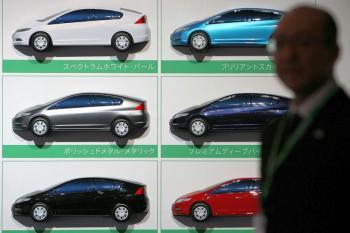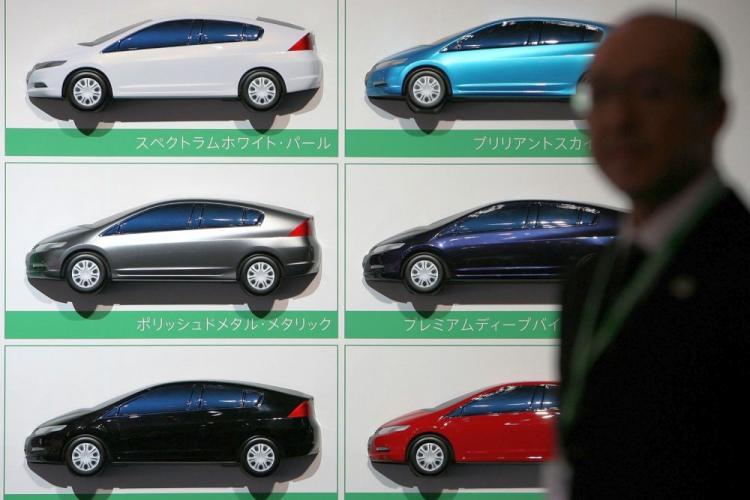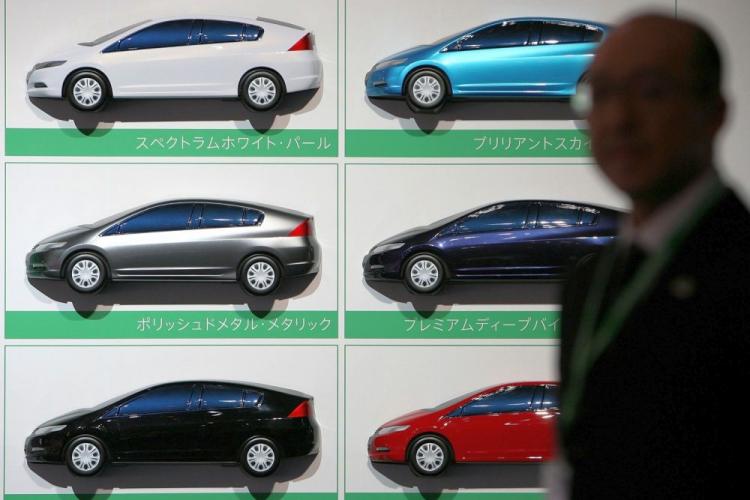Japanese Automakers Boost February Production
Global auto manufacturers have ramped up production recently in anticipation to higher car sales.

Sketches of the Honda Insight hybrid is seen at its launch event in Japan last year. Japanese automakers have increased February production in anticipation of higher sales in 2010. Kiyoshi Ota/Getty Images
|Updated:





